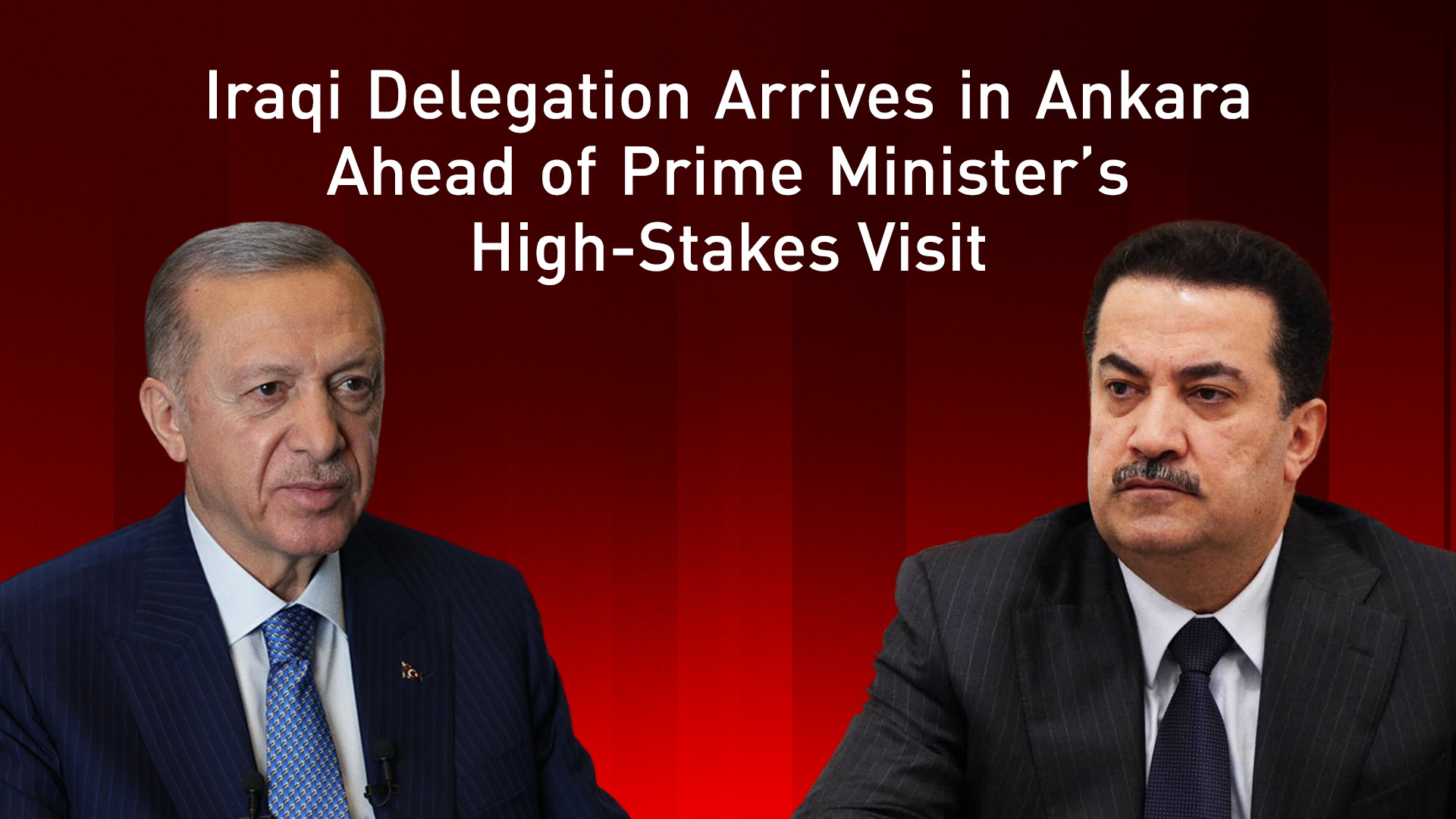Iraqi Delegation Arrives in Ankara Ahead of Prime Minister’s High-Stakes Visit
The visit aims to finalize technical talks on several Memoranda of Understanding (MoUs) covering key sectors such as security, transportation, planning, education, communications, and industry.

ERBIL (Kurdistan24) — An official Iraqi delegation arrived in the Turkish capital, Ankara on Monday, led by Mohammed Ridha Al-Husseini, Head of the Department of Neighboring Countries at Iraq’s Ministry of Foreign Affairs, as part of the final preparations for Prime Minister Mohammed Shia’ Al-Sudani’s anticipated visit later this week.
The delegation includes representatives from several key ministries and institutions, reflecting the broad scope of bilateral discussions underway between Iraq and Turkey. The visit is aimed at finalizing technical talks related to a series of Memoranda of Understanding (MoUs) expected to be signed during the prime minister’s visit. These agreements span a range of critical sectors, including security, transportation, planning, education, communications, and industry.
The visit’s agenda also includes a high-level meeting between Prime Minister Al-Sudani and Turkish President Recep Tayyip Erdoğan to discuss bilateral ties, enhance regional cooperation, and oversee the signing of the anticipated MoUs.
The upcoming visit by Prime Minister Al-Sudani underscores a pivotal moment in Iraq-Turkey relations, as both nations seek to deepen cooperation on shared strategic interests. For Iraq, strengthening ties with Turkey—its northern neighbor and a key regional power—is vital for ensuring security cooperation, boosting trade, and advancing regional integration. For Turkey, Iraq represents not only a major energy corridor but also a partner in addressing cross-border security threats, particularly those involving Turkey's Kurdistan Workers Party (PKK), designated as a terrorist organization by Turkey, the United States, and the European Union, operating in northern mountainous areas of the Kurdistan Region of Iraq.
In parallel with the broader agenda, Iraqi officials have consistently pressed Turkey to guarantee Iraq’s fair share of water from transboundary rivers, particularly the Tigris and Euphrates, which originate in Turkey. Repeated droughts, declining water levels, and upstream dam projects have severely impacted Iraq’s agricultural sector and drinking water supplies. Baghdad has urged Ankara to commit to equitable water-sharing arrangements, framing the issue as a matter of national security and humanitarian urgency. It is expected that water diplomacy will feature prominently in the upcoming talks.
In recent months, both countries have signaled renewed intent to work together on mutual challenges such as border security, counterterrorism efforts, and water resource management. The expected signing of MoUs in sectors like transportation and communications also points to Iraq’s broader agenda of modernizing its infrastructure and enhancing regional connectivity.
Al-Sudani’s visit, if successful, could mark a new chapter in diplomatic and economic relations between Baghdad and Ankara—one that balances political cooperation with tangible development initiatives.
